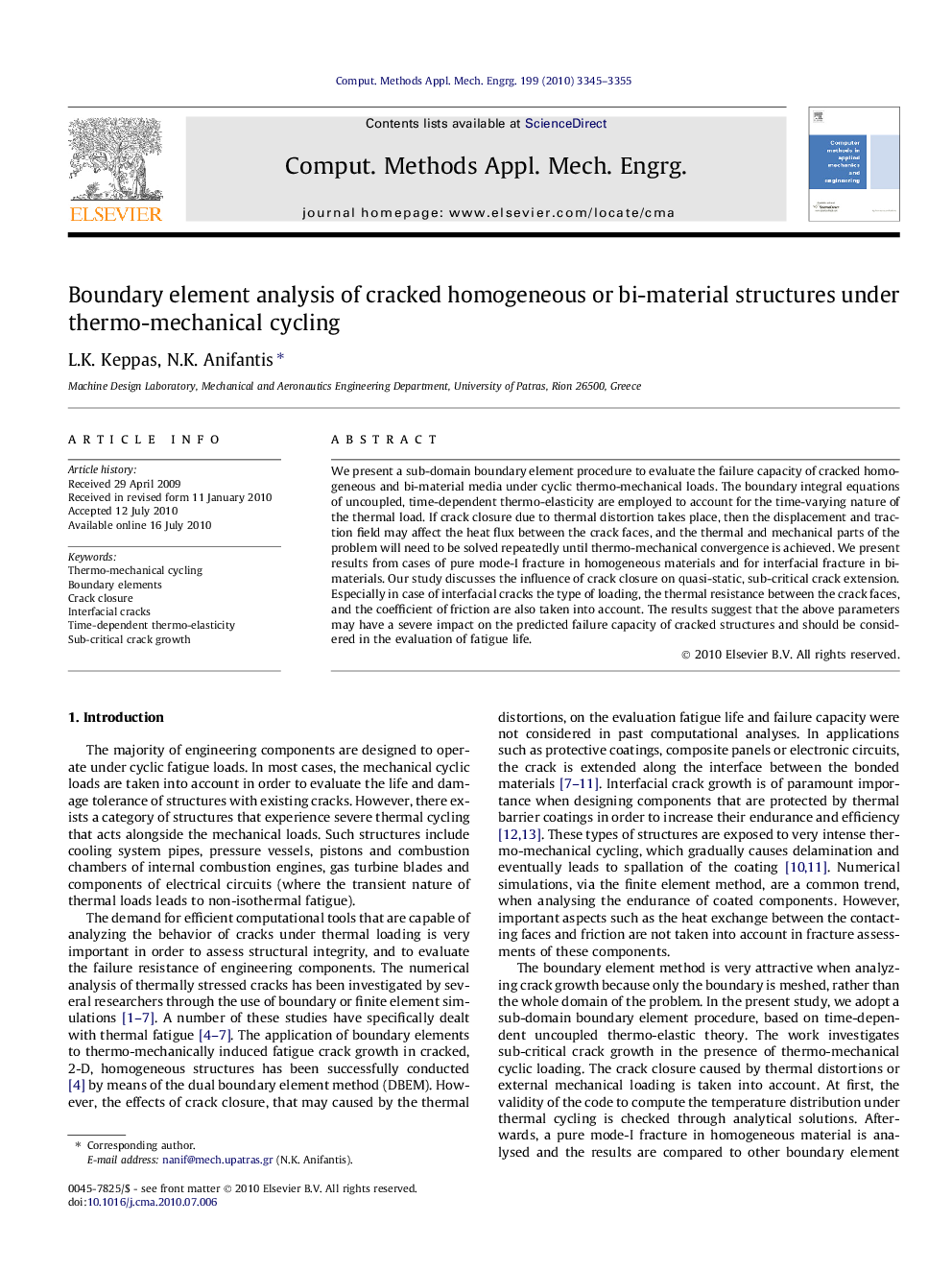| Article ID | Journal | Published Year | Pages | File Type |
|---|---|---|---|---|
| 498827 | Computer Methods in Applied Mechanics and Engineering | 2010 | 11 Pages |
We present a sub-domain boundary element procedure to evaluate the failure capacity of cracked homogeneous and bi-material media under cyclic thermo-mechanical loads. The boundary integral equations of uncoupled, time-dependent thermo-elasticity are employed to account for the time-varying nature of the thermal load. If crack closure due to thermal distortion takes place, then the displacement and traction field may affect the heat flux between the crack faces, and the thermal and mechanical parts of the problem will need to be solved repeatedly until thermo-mechanical convergence is achieved. We present results from cases of pure mode-I fracture in homogeneous materials and for interfacial fracture in bi-materials. Our study discusses the influence of crack closure on quasi-static, sub-critical crack extension. Especially in case of interfacial cracks the type of loading, the thermal resistance between the crack faces, and the coefficient of friction are also taken into account. The results suggest that the above parameters may have a severe impact on the predicted failure capacity of cracked structures and should be considered in the evaluation of fatigue life.
